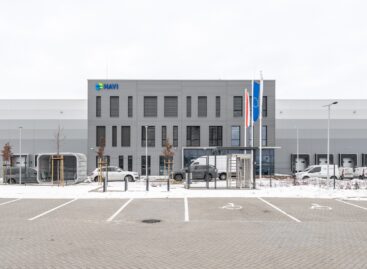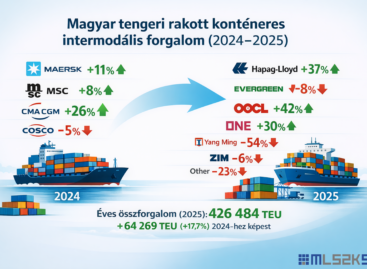Online grocery ordering is widespread throughout the country
Almost half of Hungarians already use the home delivery services of supermarkets available on the Internet during their shopping, based on joint research by the smart logistics company DODO and Tesco. For most customers, what makes online shopping attractive is that they certainly don’t end up with products they don’t really need, and that they save time. According to two out of three respondents, it is particularly important to be able to receive their orders in the time slot they have chosen. In addition to the capital and county seats, home delivery of food has already become popular in villages – the proportion of users in small towns also exceeds 41 percent.
Regardless of age and place of residence, more and more people recognize the advantages of online shopping and use this opportunity on a regular basis – this is revealed by the survey prepared by IPSOS Hungary, commissioned by DODO, which specializes in data-driven home delivery solutions, and one of the largest Hungarian supermarket chains and online grocery stores, Tesco, from a recent survey[i]. According to national, representative research, 29 percent of the population buys groceries at least monthly, and an additional 15% buys groceries several times a year. This means that 44 percent of Hungarians who use the Internet are already customers of online supermarkets. In Hungary, online shopping is more popular than in Slovakia, where, based on the results of a similar, recent research [ii], 35 percent ordered food via the Internet in the past year.
It is interesting that the distribution by gender is different: to a small extent, barely 6 percent, but the proportion of male users among online shoppers is higher compared to that of women. By age, however, a more significant difference can be observed, the willingness to shop online gradually decreases over forty: while two-thirds of those aged 18-39 use online supermarkets, 41 percent of those aged 40-49, a third of those aged 50-59, 60 and only 28 percent of those above buy food via the Internet. Among the settlement types, online shopping is the most popular in county seats, where 53 percent use this option. In the capital, the proportion of people who order food online is slightly lower than the national average, i.e. over 45%, but this value also exceeds 41% in the villages. Regarding the willingness to shop online, there is no significant difference between the domestic regions: Central Transdanubia and the Northern Great Plain show a higher interest in online supermarkets than the national average.
Related news
The domestic logistics market has been expanded with a unique cold storage facility: the new headquarters of HAVI Logistics have been opened
🎧 Hallgasd a cikket: Lejátszás Szünet Folytatás Leállítás Nyelv: Auto…
Read more >Imports drove growth in sea container traffic in 2025
🎧 Hallgasd a cikket: Lejátszás Szünet Folytatás Leállítás Nyelv: Auto…
Read more >Related news
The impact of the forint exchange rate on GDP growth
🎧 Hallgasd a cikket: Lejátszás Szünet Folytatás Leállítás Nyelv: Auto…
Read more >Cheese-cocoa-peach jam: these are the most popular cookie flavors
🎧 Hallgasd a cikket: Lejátszás Szünet Folytatás Leállítás Nyelv: Auto…
Read more >









